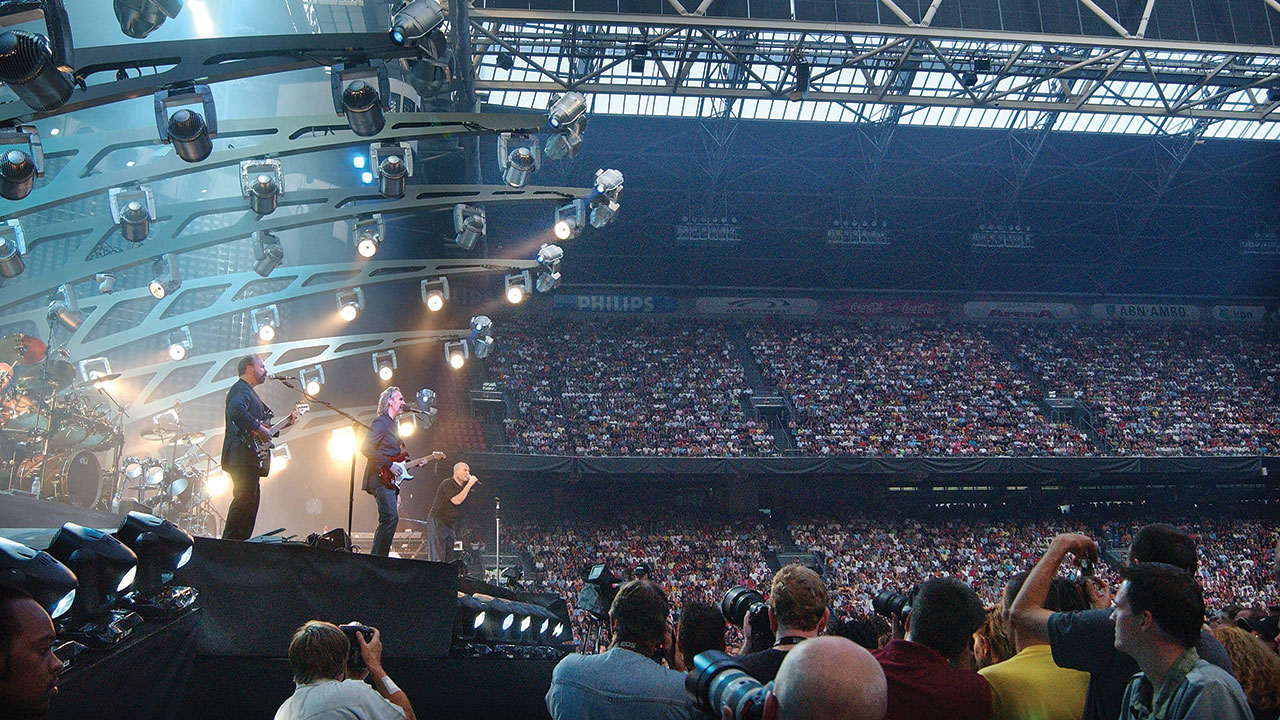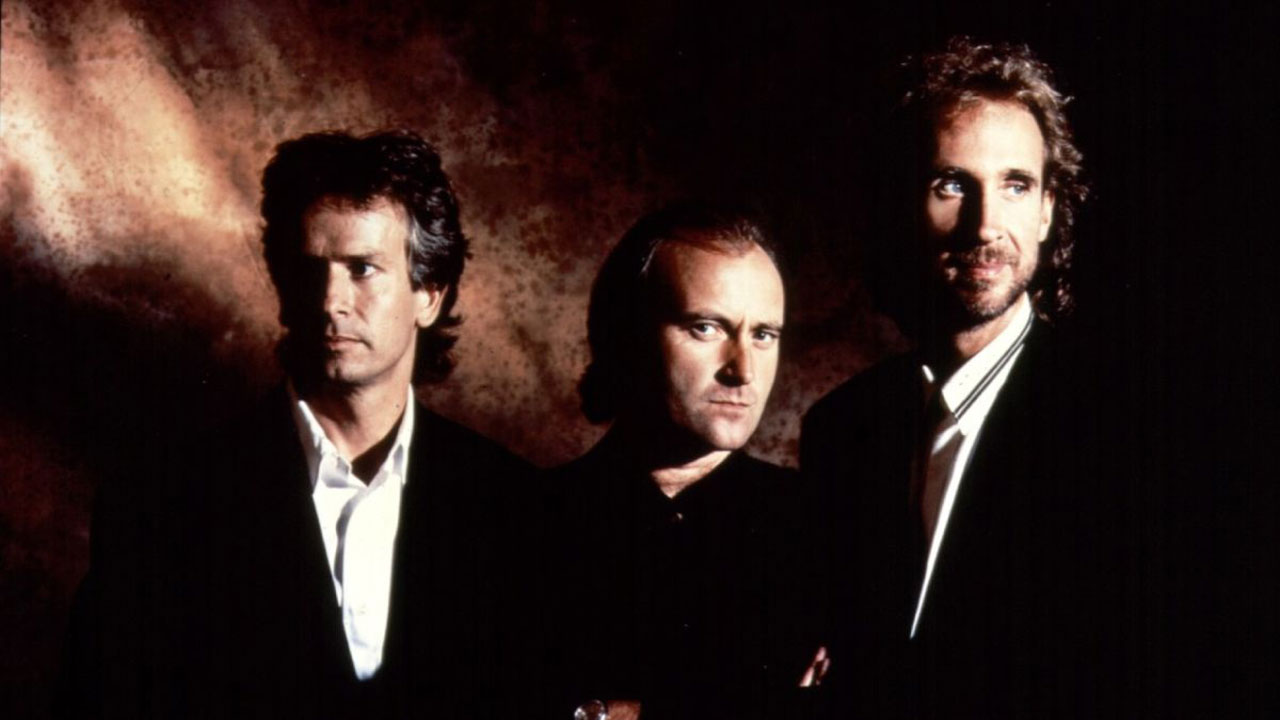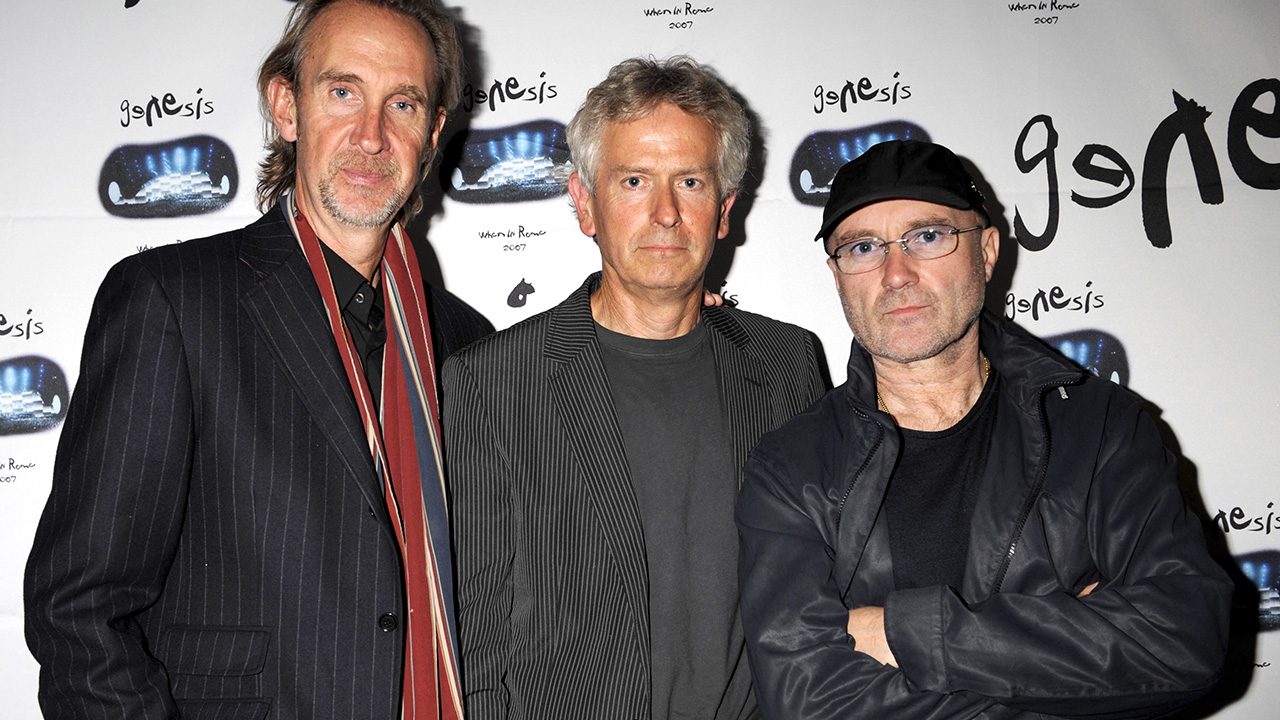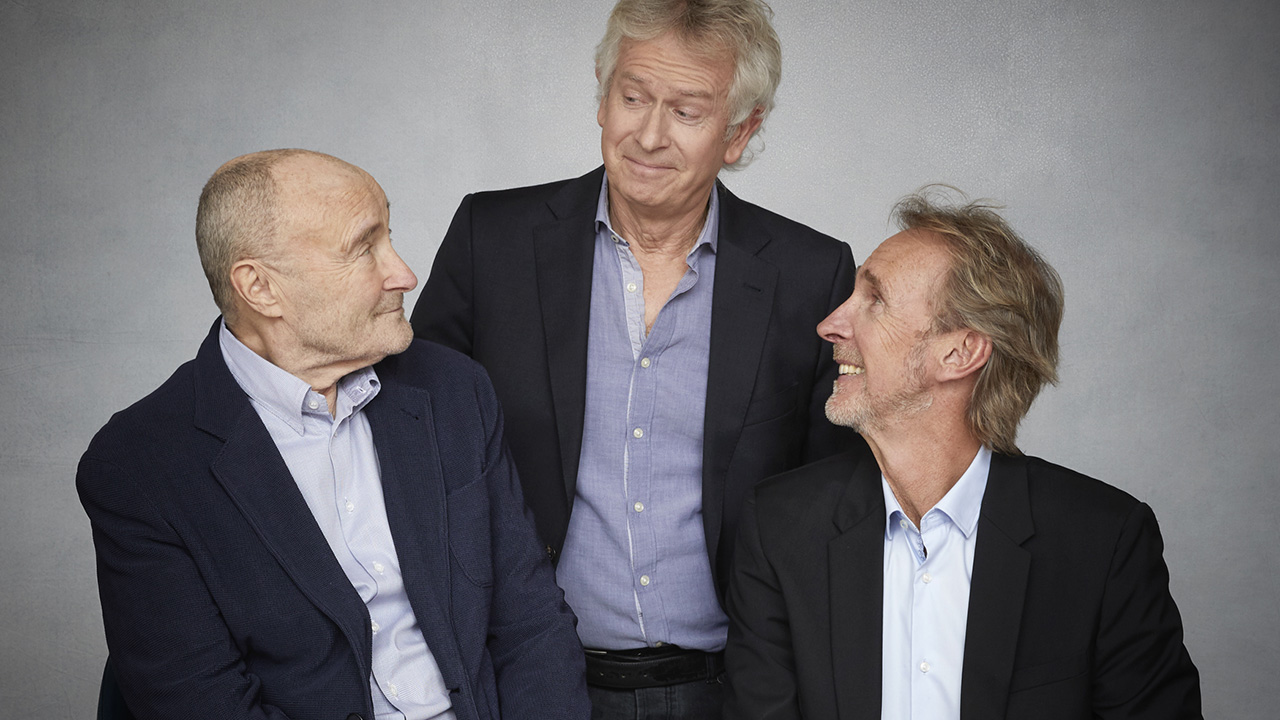Many Genesis fans will recall Phil Collins’ opening monologues at latter-day Genesis shows, wherein he’d relate that the band would later be playing “some old songs” – cue massive cheers from the massed throng – as well as “some new songs” – less enthusiastic cries from the audience. Ever the showman, Collins would pick up on this, working the crowd, who needless to say always came down on the side of the older material, but now, suitably buzzing, were also in the palm of the singer and drummer’s hand.
My own recollection of this goes back to July 1987 when the band played four nights at Wembley Stadium on the massively successful Invisible Touch tour. And even if, on the nights in question, those “old songs” amounted to a three-song medley featuring In The Cage, …In That Quiet Earth and Afterglow, in acknowledging the age-old dichotomy for any live band in getting the balance of their live set right, Collins’ work was done. Crowd on side. Great live show.
As Dave Everley points out in his interview with the newly reunited Genesis in Prog 109, when the band teamed up for the Turn It On Again tour, the distribution between old and new was even more balanced but then they weren’t touring a massively successful new album at the time.
As Tony Banks says in that interview, “There are certain things you have to play at a live Genesis concert now, for better or worse, and that takes up a lot of the show. But we’ve got quite a big catalogue to choose from. There are one or two songs we haven’t done for a long time, which could sound great.”
Most bands would readily admit they have to bite the bullet and enter the somewhat perilous world of choosing a setlist knowing they can’t please all the people all of the time. Looking at the online reaction to the news the group were getting back together again, it’s certainly true to say not everyone was as enamoured as one thought they might be.

When Genesis replaced Phil Collins in 1996 with former Stiltskin singer Ray Wilson, the internet was but a fledgling technological marvel and no one really knew how it would impact on our lives. Even in 2007, when Genesis last reunited, I don’t recall much in the way of online debate about the ensuing reunion. But in the last 10 years the grip that social media has over many aspects of modern life has become ever more mephitic.
There was an interesting article in one of the daily UK newspapers as the coronavirus crisis worsened and lockdown approached, highlighting how the internet has turned the modern world into the ‘now’ society. Advances in technology and the ubiquity of retail sites, such as Amazon, in our daily lives mean we expect almost everything right here and right now, not tomorrow. Our reactions when that expectation is not met are magnified out of all reasonable proportion, to the extent that a missed delivery slot for our groceries is now dealt with in a manner once only used for, say the ending of a personal relationship, or even worse.
Ascribe that attitude to something people feel incredibly passionate about, such as music, and it doesn’t take a genius to work out it’s a potential minefield these days whenever a band does anything. Tour dates are a fine example. Back in the day, a tour announcement in the press was greeted largely with delight, off people trotted to buy their tickets and wait to enjoy the show. Today, we’ve barely pressed ‘send’ on a social media announcement and we can guarantee the first reaction will be someone moaning: ‘X isn’t playing near me, typical!’ and often in a manner that would make their mother blush.
Give people a mouthpiece and of course they’ll use it. Those who like the sound of their own voice more than others. Almost everyone reading this will have raised an eyebrow at the ‘No Jon, No Yes’ mantra so beloved by a certain faction of the Yes audience. With Pink Floyd, these days one can’t mention Roger Waters without
a swarm of abuse because of his pro-Palestinian views. With Jethro Tull it’s whether Ian Anderson should continue to use the band’s name, or worse, the nature of the ravages of time on his voice. And with Genesis, it’s normally that since the departure, more than 40 years ago, of both Peter Gabriel and Steve Hackett, the band aren’t what they once were. We get it, but it’s not a point of view this magazine largely subscribes to.
This latter ethos was largely behind the wave of wailing and gnashing of teeth that greeted news of the current Genesis reunion because Peter Gabriel and Steve Hackett weren’t taking part. Given that Gabriel has been working on a follow-up to 2002’s Up for 18 years now and that Hackett has his own tour announced and booked towards the end of the year, their involvement was always highly unlikely. Equal anger was aired at the price of tickets (which in fairness didn’t seem out of sync with other massive shows of this ilk), to some rather discourteous comments about the health of Phil Collins.

Speaking as a fan, of course I would have loved to have seen a reunion of the five-piece line-up of 1970-1975. But in reality I didn’t think it would happen due to Gabriel’s own prevaricating the last time the five (who remain friends) discussed the idea, and other general impracticalities. Equally, I totally understand Mike Rutherford when he says: “People go, ‘It would be a lovely idea for Peter to rejoin’, but he left 45 years ago. And Steve left 43 years ago. People don’t think about how it works – who sings what? No, it was always going to be the three of us.”
Needless to say, despite some online resentment, (you suspect from people who would undoubtedly chastise their own children were they to act in such a manner) the Genesis tour dates sold out in a mater of minutes, suggesting firstly that their fanbase remains strong – hardly surprising for a band who have sold somewhere in the region of 160 million albums. Secondly, there are just as likely to be as many people reading this who will be going along to enjoy the show than there are those doggedly sticking to their maxim that they don’t listen to any Genesis album after 1974’s The Lamb Lies Down On Broadway.
Which brings us to that volatile minefield, the setlist? What will Genesis play when, Covid-19 permitting, they hit UK arenas in April 2021? It’s something every Genesis fan is going to have an opinion on, probably even those who have written the tour off as something not worth their time or attention.
There’s going to be the big hits, for sure. I’d expect at least several from the likes of Turn It On Again, Land Of Confusion, Invisible Touch, We Can’t Dance and hopefully (as far as this writer’s concerned) Mama.
Understandably, in their press interviews the band were reluctant to give much away, but what they did reveal offered hope for diehards hankering for the proggier end of their repertoire, none more so than the admittance that they’re considering Supper’s Ready. Not the whole thing, of course, given the amount of material they have to draw on and Rutherford’s admittance that the set is unlikely to go beyond two hours. But bits of it are better than none at all. The band last dusted it down with Ray Wilson for 1997’s Calling All Stations tour.
“I’m all in favour of doing a bit of it, particularly for a British audience, because I feel it’s such a strong part of our history,” is what Banks had to say about the importance of Supper’s Ready to the band, 48 years after they wrote and recorded it.

Another long-held bugbear for those Genesis fans who want to hear the band “playing some old songs” is that Genesis are more pop than prog these days. This is, perhaps, a bit more understandable, but shave off the extremist points of view at either end and you’re still left with a fanbase who are just as happy to lap up Duchess from Duke, a song that the band admit they have been working on in rehearsal, as they are whatever bits of Supper’s Ready we do get offered.
Equally, both Banks and Rutherford have long held the belief that Genesis never abandoned long-form progressive music, even when the hits started rolling in. This is a view both have expressed to this writer in interviews over the years, and it is backed up with the epic Duke’s Travels and Duke’s End from 1980’s aforementioned Duke, which last aired on the 2007 tour, Dodo/Lurker from the following year’s Abacab (which for many took on new life with the excellent rendition on 1982’s Three Sides Live), the superlative ghost story Home By The Sea and Second Home By The Sea from 1983’s Genesis, the expansive Domino from 1986’s Invisible Touch and both Driving The Last Spike and Fading Lights from 1991’s We Can’t Dance. All excellent slices of a more modern take on prog, although probably not to the liking of those for whom prog is something that was recorded in the 70s and has remained frozen in time ever since.
Given the title of the tour, The Last Domino?, we’re definitely getting Domino, and this writer would be a very happy man if the Home By The Sea suite got an airing. And Fading Lights, the gentle, pastoral 10-and-a-bit minutes that closes off We Can’t Dance is another song the band have said they’ve been looking at.
This latter is interesting. Largely overlooked at the time of release by the more upfront and equally lengthy Driving The Last Spike, yet for many it now stands as the album’s finest offering. “I remember Tony being interviewed about this song,” one-time Genesis singer Ray Wilson recently said. “And he said that he felt it was like the last thing they’d ever do. He had a feeling in his soul that they wouldn’t record another album, and this song captured his emotions at that time.”
One thing that is certain, is that Genesis won’t please all their fans. Something deemed essential is bound not to make the cut. But the chances are they’ll please most of the fans who have bought tickets. And imagine if they bow out with Fading Lights, now knowing how the song’s writer felt as he penned the lyrics. Now that would be something I, for one, certainly wouldn’t want to miss. Far away, away, fading distant lights...

